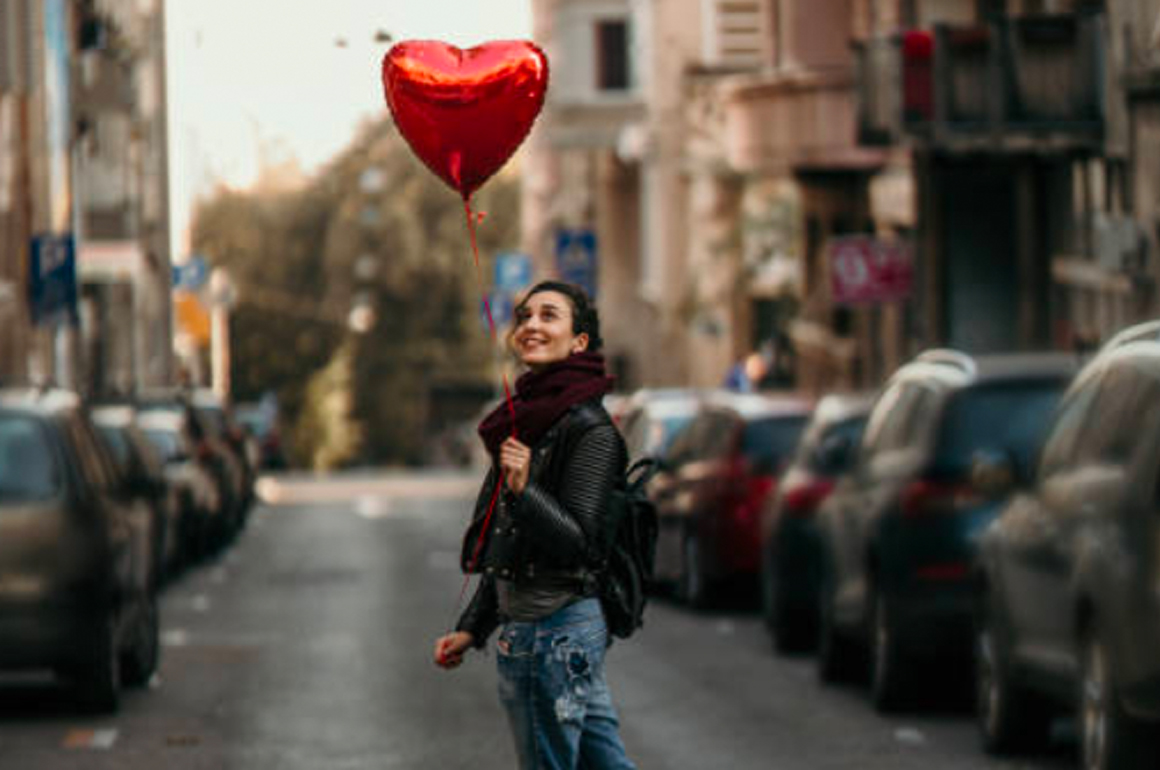

Holidays, in general, bring a lot of emotion and feelings. But New Year’s Eve, Christmas Day and Valentine’s Day – these are the holidays, more so than others, when single folks are called out for not being boo’d up. These are the holidays when there seems be an inordinate amount of pressure to celebrate and be festive. Social media starts overflowing with images of proposals and reenactments of your favorite romantic movie and grandiose gestures. Now don’t get me wrong – I love a little (a lot) of pomp and circumstance. But if you’re not in a comfortable space in your life, the comparison bug may creep in and things don’t look so celebratory. As a single lady about town, I am often asked how I feel about being alone for these holidays. Have we learned nothing from the great poet Kelly Clarkson who once said, “doesn’t mean I’m lonely when I’m alone?” (Sidebar: people can be rude and presumptuous.)
With Valentine’s Day being around the corner, some folks may feel vulnerable and pre-judged; and if depression or anxiety is already present, the day of love can feel anything but. I read that dating sites get a surge around Valentine’s Day as folks feel the pressure to have a date for February 14th.
I have a lot of thoughts and opinions on this topic but wanted to bring in a true expert to share insights about thriving as a single on Valentine’s Day. Enter Joyce McLendon, M.S.W., LCSW, BCD, MATS. Joyce is a highly-regarded, board-certified therapist in Atlanta, Georgia. She specializes in working with individuals, families and couples who may have difficulty effectively navigating relationship issues, who may struggle with depression and anxiety, balancing work-life-career issues as well as life transition challenges, and more. She’s the perfect person to give us the low-down.
Why does Valentine’s Day bring about so many emotions for singles?
In a lot of ways, Valentine’s Day represents this idea of “utopia” and, for many, it dates back to our youth. Think back to when we were in kindergarten waiting to see who put V-day cards and treats in our cubbies at school and how special we felt with each delivery. It was almost a validation that we were liked/loved/accepted and gave us a euphoric feeling. The opposite was often true if we didn’t get any valentines or as many as other students. In adulthood, Valentine’s Day can conjure up the same sort of feelings of the validation-rejection dynamic. For some, it brings along this notion that love and being a part of a relationship is the ultimate elixir of life, and once that’s been achieved, all must be right with the world. The alternative belief is that if we haven’t achieved the “in a relationship” status, that something must be wrong with us. That is a false belief; nothing could be further from the truth.

Joyce McLendon, Therapist

What can you do to avoid or alleviate pressure, self-induced or otherwise?
It’s important to stay in the moment and be appreciative of the things you have. Social Media can be a blessing and a curse in a lot of ways. If this time of year makes you less joyful, it may be helpful to temporarily disconnect from social media. Remember that the images people post is one moment in time – it does not give us the full picture of someone’s life. But scrolling on Valentine’s Day will bring a slew of picture-perfect images to all of us and if this is a trigger for you, take a social media timeout for V-Day. Stay grounded in the fact that all that glitters is not gold.
Why do people feel comfortable calling out singles on Valentine’s Day?
That is an unfortunate tradition, I’m afraid, that started as early as middle school. Names being called over the loud-speaker to come pick up your special delivery; rose deliveries being made to classrooms. The girls with tokens of like/love were deemed special and got loads of attention…someone had taken the time and effort to publicly profess their like/love. The same holds true in adulthood. Flower deliveries at the office, proposals in public, special menus at the restaurants. It’s really in your face on Valentine’s Day and it’s easy to lose focus if you’re not in a relationship. Because of these widely celebrated public displays, others find comfort in calling out those who didn’t receive showers of public affection. If someone does this, it is their issue not yours. Whenever anyone says or does anything unkind, it is a reflection of the feelings they have for themselves rather than a reflection of who you are. If individuals believe that their worth resides in being in a relationship, they will assume that anyone not in a relationship is unhappy. The truth is that many singles are extremely confident with their relationship status.
How do you avoid comparison?
Understand your triggers. If social media is a trigger, avoid it. If seeing people gushing in public is a trigger, have a purposeful night in. Do what you can to control your own experiences. Be aware of what you feel and honor that. Be mindful of all the good things in your life that last beyond February 14th. What makes you proud about yourself?
If you have depression or anxiety, any tips?
If you’re struggling with depression or anxiety, practicing mindfulness can help decrease stress and regulate emotions. Be mindful and intentional by planning ahead to do something you’re passionate about with some of the people that mean the most to you. I love the concept of Galentine’s Day for this reason. Introduced a decade ago on Parks and Recreation, February 13th is now the officially unofficial day when women intentionally celebrate their love for their friends. (Guys could do something similar.) But a day of self-love can also be great. Have a solo Netflix and Chill night complete with foods and drinks you love. Write yourself a love letter. Have a day at the spa. Get your nails done. Meditate. Read a fun book. Take a bath. Do whatever makes you feel celebrated, because you deserve it. And if this is beyond a moment in time, seek therapy and understand how to address ongoing depression or anxiety. (It is important to avoid playing that movie reel titled “memory lane” and living in regret, particularly if you’ve had a recent break up.)
Why do otherwise successful people feel particularly vulnerable when it comes to relationships, particularly on V-Day?
A successful person is accustomed to winning and coming out on top – all the things that derive from diligence, consistency and hard work. When you’re successful in the workplace, many people feel that same grit will also land them a successful relationship; but that is not the case. There is also pressure from colleagues, family and friends to be successful in love, but the two are not synonymous.
What is a good mantra for single folks?
Create a life you can be proud of.
Should folks avoid online dating for Valentine’s Day or wear it out?
I am a firm believer that people should do what makes them happy. If having a date on Valentine’s Day is important, then start swiping.
What type of self-love is important during this time?
Self-love is a mindset and should be extended to ourselves just like we extend it to the people we love that surround us. It means unconditional love for yourself no matter what your relationship status is.
How can singles keep things in perspective?
Individuals should focus on the moment at hand, stay present, mindful and hopeful of the future you want. Valentine's Day has been etched in stone as the day of love. That will never change. However, we can be intentional about how we view this day. Look at it as an opportunity to be grateful for the loving relationships you have and always try to put yourself first by participating in and doing the things that bring you joy.
Joyce McLendon currently sees patients in Atlanta, Georgia and remotely. To learn more about her or to schedule an appointment, visit Therapy for Black Girls or Psychology Today.











Amazing article and not just because I’m featured! Mostly because your site is spectacular! The Valentine gift ideas came in sooo handy as I used it to purchase a Gift for my husband. Thank you 🙏🏾